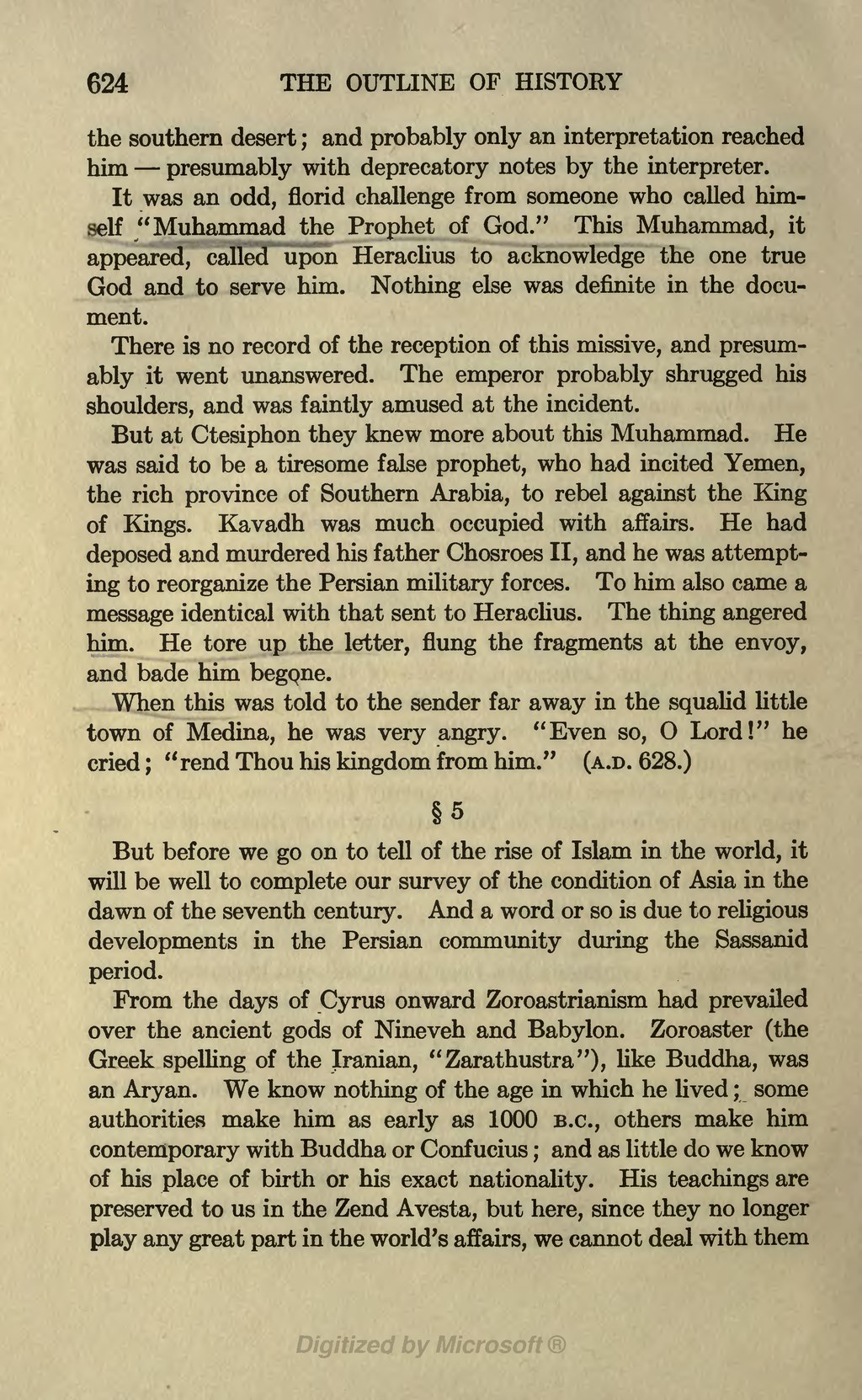the southern desert; and probably only an interpretation reached him—presumably with deprecatory notes by the interpreter.
It was an odd, florid challenge from someone who called himself "Muhammad the Prophet of God." This Muhammad, it appeared, called upon Heraclius to acknowledge the one true God and to serve him. Nothing else was definite in the document.
There is no record of the reception of this missive, and presumably it went unanswered. The emperor probably shrugged his shoulders, and was faintly amused at the incident.
But at Ctesiphon they knew more about this Muhammad. He was said to be a tiresome false prophet, who had incited Yemen, the rich province of Southern Arabia, to rebel against the King of Kings. Kavadh was much occupied with affairs. He had deposed and murdered his father Chosroes II, and he was attempting to reorganize the Persian military forces. To him also came a message identical with that sent to Heraclius. The thing angered him. He tore up the letter, flung the fragments at the envoy, and bade him begone.
When this was told to the sender far away in the squalid little town of Medina, he was very angry. "Even so, O Lord!" he cried; "rend Thou his kingdom from him." (A.D. 628.)
§ 5
But before we go on to tell of the rise of Islam in the world, it will be well to complete our survey of the condition of Asia in the dawn of the seventh century. And a word or so is due to religious developments in the Persian community during the Sassanid period.
From the days of Cyrus onward Zoroastrianism had prevailed over the ancient gods of Nineveh and Babylon. Zoroaster (the Greek spelling of the Iranian, "Zarathustra"), like Buddha, was an Aryan. We know nothing of the age in which he lived; some authorities make him as early as 1000 B.C., others make him contemporary with Buddha or Confucius; and as little do we know of his place of birth or his exact nationality. His teachings are preserved to us in the Zend Avesta, but here, since they no longer play any great part in the world's affairs, we cannot deal with them
